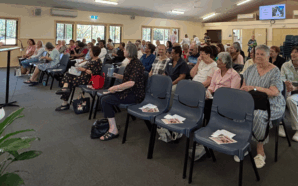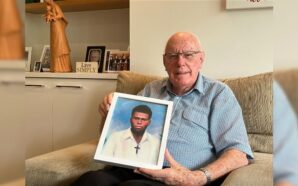Most Reverend Vincent Long Van Nguyen OFM Conv DD STL, Bishop of Parramatta
Homily for the 150th Jubilee anniversary of the Sisters of the Holy Family of Nazareth
Readings: Sirach 44:1, 10–15; Philippians 1:3–11; Luke 4:16–21
13 September 2025
Embodying God’s self-emptying love
Dear friends, Dzień dobry
It is with a great sense of gratitude, trust and hope that we have gathered here in this beautiful chapel to mark the Jubilee of the Sisters of the Holy Family of Nazareth. 150 years ago, Blessed Maria Franciszka Siedliska, a member of the Third Order of St Francis, met Pope Pius IX in Rome and petitioned him for permission to found a new congregation. She must have been a very persuasive lady because the Holy Father granted her wish almost straightaway. Soon, Mother Mary of Jesus the Good Shepherd, as she was known, and 11 sisters set sail to Chicago, USA, where they had been invited to minister to the needs of Polish immigrant children and families. She must have been a Franciscan at heart, because 11 was also the number of the first group of the followers of St Francis.
This missionary spirit would characterise the life and ministry of the Sisters of the Holy Family of Nazareth. They embrace the call to leave the security, familiarity and comfort of their homes and often their home countries, to serve the people of God in their needs. They minister to the poor, the elderly, the young, the down and out in a variety of settings such as childcare, aged care, retreat work, and in the parish, prison, and youth ministry. They work at the coal face realities of the Church and the margins of society. They embody the generous, unconditional and self-emptying love of God. They are, for us, the sacrament of His love for the world.
The book of Sirach speaks of the immortal memory and everlasting impact of our spiritual ancestors. “Their wealth remains in their families, their heritage with their descendants.” The Sisters have a long and decorated history. This generation stands on the shoulders of those before them and they, in turn, pass on their wealth and heritage to future generations. Their mission will continue to enrich many.
In the Gospel, Jesus proclaims that he has come to fulfil a kind of personal manifesto and that He has directed His mission to the lowliest of humanity. The blind see, the deaf hear, the lame walk, the dead raised and Good News preached to the poor constitute the signs of God’s reign. Wherever Jesus goes, people experience its in-breaking power through His person, teachings and actions. He fulfils the messianic prophecy of old and makes present the divine intent of redemption. He enacts the program of reconciliation through which God would lift up the downtrodden and empower them to be the stakeholders of the new world.
Consequently, empowering the powerless is the business model of the community of disciples. We have no other goal worth achieving more than loving the unloved, serving the underserved, seeking out the lost and forgotten. In the world where might is right, where the strong exert their power and influence, the Church is on the same side of the kind of people Jesus Himself made into the object of his concern.
Today is a celebration of God’s providential care and an expression of deep gratitude. It is a story richly textured with daring faith, generous love and unbounded hope. Behind these gentle and unassuming faces, there lies a force to be reckoned with; God’s strength shown in human weakness. In the words of St Paul, it is the richness of the grace which God has showered upon us and we are truly grateful.
Pope St John Paul II wrote that religious are first and foremost called to be the icon of the transfigured Christ. The transfiguration here is the result of the deep and personal union with Christ and, at the same time, the result of the suffering with Christ. Jesus alludes to this in the farewell discourse: remain in my love the love that is born on the cross, and then we shall bear fruit. Religious life will change in its expressions, shapes and sizes. We should not fear these changes. The only thing we should fear is the failure to bear the wounds of the suffering Servant and to be the icon of the transfigured Christ for our Church and for our world.
Dear sisters,
I want to conclude by reaffirming my respect and admiration for you. In the Gospels, it was female followers who showed faithfulness and enduring love more so than their male counterparts. Nowhere else is this discrepancy more obvious than at the final hours of Our Lord. I am convinced that if the Church has a bright future, it is due to the example of many female religious who are like those early female disciples, Mary Magdala, Mary, wife of Clopas and most of all Mary of Nazareth. I ask you to continue to be for the church the icon of the transfigured Christ.
Be for us the example of living the Gospel of Christ’s suffering, dying and rising again. Then we can be certain that the loving God will take care of the rest. He will bring about renewal and transformation even if He takes us through a season of extensive pruning. May the Holy Family of Nazareth intercede for you and accompany you on the journey of faithfulness. Using the words of St Paul, we thank our God every time we think of you. As we pray for you today, we pray with gratitude. For we are sure that he who began a good work in you will bring it to completion at the day of Jesus Christ. Amen. Na zdroevie.








